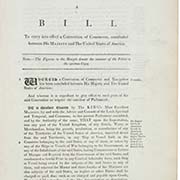CANADA HISTORY - DOCUMENTS NATIVES
1975 Declaration of Dene Nationhood passed at the Second Joint General Assembly of the Indian Brotherhood of the Northwest Territories, at Fort Simpson July 19, 1975
Analysis of the Document - (The Document follows below the Analysis)
The 1975 Declaration of Dene Nationhood, passed at the Second Joint General Assembly of the Indian Brotherhood of the Northwest Territories at Fort Simpson, was a momentous assertion of Indigenous self-determination and sovereignty. This declaration marked a pivotal moment in Canadian Indigenous history, where the Dene people formally proclaimed their inherent rights to self-governance, land, and cultural preservation. The declaration, passed against the backdrop of increasing resource extraction in Dene territory, was a clear response to the government's plans for northern development, particularly the Mackenzie Valley Pipeline project. The Dene saw these projects as direct threats to their traditional lands, culture, and way of life.
The implications of this declaration were vast, not only for the Dene people but also for the evolving relationship between Indigenous peoples and the Canadian government. It called for recognition of the Dene’s land rights, their traditional governance systems, and their opposition to economic projects that disregarded Indigenous consent. At its heart, the declaration was a challenge to Canada’s broader colonial approach to Indigenous lands and resources, signaling a growing Indigenous rights movement that would come to redefine Indigenous-settler relations in Canada.
The declaration also highlighted the need for Canada to address Indigenous land claims and sovereignty in a more meaningful way. For the Dene, this was not simply about land or resources but about the right to live according to their own laws, traditions, and governance structures. The declaration paved the way for more formal land claim negotiations, which would eventually lead to the Dene/Metis comprehensive land claim agreements in the 1980s and 1990s.
In a broader historical context, the 1975 Declaration of Dene Nationhood was part of a wider Indigenous resurgence across Canada during the 1970s, coinciding with other landmark moments like the opposition to the White Paper of 1969 and the emergence of Indigenous political organizations advocating for sovereignty and self-determination. The Dene Declaration echoed the growing Indigenous insistence on being treated as sovereign nations with rights that predated Canadian Confederation.
The influence of the declaration continued to resonate in subsequent decades, shaping the way Canada approached land negotiations and Indigenous sovereignty. It challenged both federal and provincial governments to recognize the legitimacy of Indigenous governments and to engage in negotiations that respected the traditional ownership and stewardship of the land. The 1975 Declaration of Dene Nationhood stands as a powerful reminder of the Dene’s enduring resistance to colonialism and their unwavering commitment to protecting their lands, rights, and future generations.

Statement of Rights. We the Dene of the Northwest Territories insist on the right to be regarded by ourselves and the world as a nation. Our struggle is for the recognition of the Dene Nation by the Government and peoples of Canada and the peoples and governments of the world.
As once Europe was the exclusive homeland of the European peoples, Africa the exclusive homeland of the African peoples, the New World, North and South America, was the exclusive homeland of Aboriginal peoples of the New World, the Amerindian and the Inuit.
The New World like other parts of the world has suffered the Experience of colonialism and imperialism. Other peoples have occupied the land - often with force - and foreign governments have imposed themselves on our people. Ancient civilizations and ways of life have been destroyed.
Colonialism and imperialism are now dead or dying. Recent years have witnessed the birth of new nations or rebirth of old nations out of the aches of colonialism.
As Europe is the place where you will find European countries with European governments for European peoples, now also you will find in Africa and Asia the existence of African and Asian countries with African and Asian governments for the African and Asian peoples.
The African and Asian peoples - the peoples of the Third World - have fought for and won the right to self- determination, the right to recognition as distinct peoples and the recognition of themselves as nations.
But in the New World the Native peoples have not fared so well. Even in countries in South America where the Native peoples are the vast majority of the population there in not one country which has an Amerindian government for the Amerindian peoples.
Nowhere in the New World have the Native peoples won the right to self- determination and the right to recognition by the world as a distinct people and as Nations.
While the Native people of Canada are a minority in their homeland, the Native people of the Northwest Territories, the Dene and the Inuit, are a majority of the population of the Northwest Territories.
The Dene find themselves as part of a country. That country is Canada. But the Government of Canada is not the Government of the Dene. The Government of the Northwest Territories is not the Government of the Dene. These governments were not the choice of the Dene, they were imposed upon the Dene.
What we the Dene are struggling for is the recognition of the Dene nation by the governments and peoples of the world.
And while there are realities we are forced to submit to, such as the' existence of a country called Canada, we insist on the right to self- determination as a distinct people and the recognition of the Dene Nation.
We the Dene are part of the Fourth World.- And as the peoples and Nations of the world have come to recognize the existence and rights of those peoples ,who make up the Third World the day must come when the nations of the Fourth World will come to be recognized and respected. The challenge to the Dene and the world is to find the way for the recognition of the Dene Nation.
Our plea to the world is to help us in our struggle to find a place in the world community where we can exercise our right to self-determination as a distinct people and as a nation.
What we seek then is independence and self-determination within the country of Canada. This is what we mean when we call for a just land settlement for the Dene nation.
Cite Article : www.canadahistory.com/sections/documents
Source: NAC/ANC, Elgin-Grey Papers



